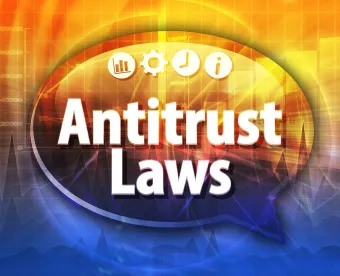A. Federal Trade Commission (FTC).
-
Final order on Tri Star Energy, LLC’s acquisition of Hollingsworth Oil by divesting gas stations in Tennessee.
On Aug. 25, 2020, Arko Holdings Ltd. and Empire Petroleum Partners, LLC agreed to divest retail gasoline and diesel fuel operations in four states to settle FTC charges that Arko’s acquisition of Empire would violate federal antitrust law. The FTC’s complaint alleged that the acquisition would harm competition in seven local markets in Indiana, Michigan, Maryland, and Texas for the retail sale of gasoline and in three local markets for the retail sale of diesel fuel, resulting in three or fewer competitors in all of these local markets. Under the settlement, Arko and Empire are required to divest operations in these markets to an independent competitor within 20 days after Arko’s acquisition of Empire and to provide transitional services to the divestiture buyers for up to 15 months after divesting these operations.
| 2. | Arko Holdings settles acquisition of Empire Petroleum by divesting gas stations in Indiana, Michigan, Maryland, and Texas. |
On July 15, 2020, the FTC required Elanco Animal Health and Bayer Animal Health, two global suppliers of animal products, to divest three animal health products to settle FTC charges that Elanco’s proposed $7.6 billion acquisition of Bayer would be likely to cause anticompetitive effects in those markets. The three impacted markets are low-dose prescription treatments for canine otitis externa; fast-acting oral treatments that kill fleas on dogs; and brand-name cattle pour-on insecticides. The FTC’s complaint alleged that the acquisition would create a merger in the market for the first two products and that the third market would be highly concentrated because Elanco, the third largest competitor, would be acquiring Bayer, the market leader.
| 3. | Final approval of Eldorado Resorts’ $17.3 billion acquisition of Caesars Entertainment. |
On Aug. 26, 2020, the FTC gave final approval to its previously announced settlement approving Eldorado Resorts, Inc.’s $17.3 billion acquisition of Caesars Entertainment Corporation; the order requires the parties to divest casino-related assets to Twin River Worldwide Holdings, Inc. in the South Lake Tahoe area of Nevada and the Bossier City-Shreveport area of Louisiana. The FTC’s previously announced settlement was discussed in the July 2020 Competition Currents newsletter.
B. Department of Justice (DOJ).
| 1. | Alleged conspiracy to avoid competition in central Pennsylvania hospitals. |
On Aug. 5, 2020, the DOJ filed suit challenging Geisinger Health’s partial acquisition of Evangelical Community Hospital. Geisinger, a large hospital system in central and northeastern Pennsylvania, closely competes with Evangelical, an independent community hospital in Lewisburg, Pennsylvania, for acute-care hospital services for many patients. In a six-county area in central Pennsylvania, Evangelical and Geisinger’s two hospitals together account for approximately 71% of the market. The complaint alleges that in February 2019, the parties, recognizing that their merger would violate antitrust laws, entered into a partial acquisition agreement whereby the two hospitals would have significant commercial and competitive coordination and entanglements, which would have the effect of significantly reducing their incentives to compete against one another, substantially lessening competition and unreasonably restraining trade in the market for inpatient hospital services in central Pennsylvania.
| 2. | Court approves termination of 70-year-old order regarding distribution of films to movie theaters. |
On Aug. 7, 2020, a federal court in the Southern District of New York approved the DOJ’s motion to terminate the Paramount Consent Decrees, which for more than 70 years regulated how certain movie studios distributed films to movie theaters. In its motion, DOJ argued that the conspiracies and anticompetitive practices that existed at the time of the DOJ’s 1938 film industry litigation no longer exist and that new technology has created many different movie platforms that did not exist at that time, such as cable and broadcast television, DVDs, and steaming and download services. Among other things, the Paramount Consent Decrees had required movie studios to separate their distribution operations from their exhibition operations and also banned various motion picture distribution practices such as block booking, circuit dealing, resale price maintenance, and granting exclusive film licenses for specific geographic areas. The court terminated the decrees effective Aug. 7, with the exception of a two-year sunset period for block booking and circuit dealing in order to permit an orderly commercial transition period for those practices.
| 3. | DOJ settles CenturyLink’s alleged violation of divestiture order from 2018 acquisition. |
On Aug. 14, 2020, the DOJ and CenturyLink, Inc. settled allegations that CenturyLink had violated a court ordered judgment designed to prevent anticompetitive effects arising from its 2018 acquisition of Level 3 Communications, Inc. The DOJ had alleged that CenturyLink, one of the largest wireline telecommunications providers in the United States, violated the terms of that judgment by soliciting former Level 3 customers who had elected to switch their accounts to a DOJ-approved divestiture buyer. That divestiture had been previously ordered to replace competition lost as a result of CenturyLink’s acquisition of Level 3. The settlement amends the previously entered 2018 judgment against CenturyLink by extending the non-solicitation period in the Boise Metropolitan Statistical Area (MSA) by two years, appointing an independent monitoring trustee, and requiring CenturyLink to reimburse DOJ for the costs associated with DOJ’s investigation of the CenturyLink order violations.
| 4. | Vortex Commercial Flooring pleads guilty, pays $1.4 million fine, in ongoing investigation into nationwide bid-rigging for commercial flooring services and products. |
On Aug. 27, 2020, the DOJ charged Vortex Commercial Flooring Inc., a Chicago-area commercial flooring contractor, for its role in a long-running antitrust conspiracy to rig bids and fix prices for commercial flooring services and products sold in the United States. Vortex agreed to plead guilty and pay at least $1.4 million in fines and restitution and to cooperate in the ongoing DOJ investigation. According to the one-count complaint, Vortex and its previously charged executives engaged in a conspiracy to suppress and eliminate competition in the commercial flooring market by agreeing with other individuals and companies to submit complementary bids so that the designated company would win the contract.
C. U.S. Litigation.
| 1. | Humana Inc. v. Mallinckrodt ARD, LLC, Case No. 2:19-cv-06926 (C.D. Cal. Aug. 14, 2020). |
On Aug. 14, 2020, the district court in the Central District of California, while denying Mallinckrodt’s motion to dismiss, allowed Humana to amend its complaint. Humana alleged that Mallinckrodt engaged in a scheme to keep its drug off the market and maintain a monopoly for its infant spasm drug Acthar. It also alleged that Mallinckrodt bribed physicians to prescribe its drug and engaged in conduct it alleged constituted a kickback.
| 2. | In re Glumetza Antitrust Lit., Case No. C-19-05822 (N.D. Cal. Aug. 15, 2020) |
On Aug. 15, 2020, the court certified a direct purchaser class in a series of consolidated cases. The cases arise from an alleged reverse-payment settlement of a patent infringement suit between manufacturers and marketers of the diabetes drug Glumetza in 2012. In that settlement, Lupin Ltd, which had developed a generic version of Glumetza, a drug to treat Type II diabetes, was granted a license to begin selling its generic Glumetza starting in 2016 – four years prior to patent expiry. As part of its settlement of its claims against Lupin, plaintiffs allege that the brand-named manufacturer agreed not to launch its own authorized generic version of Glumetza until six months after Lupin entered the market. Plaintiffs claim that as a result of the agreement, the price of Glumetza increased from $5.72 a pill to $51 a pill. Direct purchasers of the pills filed a putative class action.
| 3. | Mish Int’l Monetary Inc., v. Vega Capital London, Ltd., Case No. 1:20-cv-04577 (N.D. Ill. Aug. 4, 2020). |
On Aug. 4, 2020, crude oil trader Mish International filed a federal class action suit against Vega Capital in the Northern District of Illinois related to Vega’s alleged price manipulation during the period in April 2020 when West Texas oil futures contracts were driven negative for the first time in history. According to the suit, Vega made a $500 million profit by manipulating the market, along with others, to drive prices negative after it had improperly pre-gamed the market in order to reap massive profits from a negative futures price. According to the complaint, at least a dozen traders associated with Vega Capital worked together to aggressively sell May 2020 futures contracts and other related instruments for the purpose of depressing the price (including the settlement price) of the May 2020 WTI futures contract. This is the most recent of several filings related to the unprecedented negative prices of the West Texas Crude futures contracts.
| 4. | Trone Health Servs., Inc. v. Express Scripts Holding Co., ____ F.3d _____, 2020 WL 5268511 (8th Cir. Sept. 4, 2020). |
Express Scripts Holding Co. defeated a lawsuit by a group of retail pharmacies that accused the company of attempting to monopolize a portion of the pharmacy market by unlawfully using their customer information to steal their customers. The pharmacies, including Trone Health Services Inc. and Reddish Pharmacy Inc., failed to plausibly allege claims for breach of contract, misappropriation of trade secrets, and attempted monopolization based on Express Scripts’ practice of automatically enrolling their customers in its mail-order pharmacy service, the Eighth Circuit said. According to the court, plaintiffs failed to establish that Express Scripts did not have permission to use customer information to contact customers directly, nor did plaintiffs properly define the relevant market; market definition is integral to a plaintiff proving a monopolization claim.
Edoardo Gambaro, Yuji Ogiwara, Stephen M. Pepper, Gillian Sproul, Hans Urlus, Dawn (Dan) Zhang, Jacomijn Christ, Filip Drgas, Simon Harms, Marta Kownacka, Shuhei Mikiya, Pietro Missanelli, Jose Abel Rivera-Pedroza, Ippei Suzuki, Rebecca Tracy Rotem and Alan W. Hersh contributed to this article.







 />i
/>i


